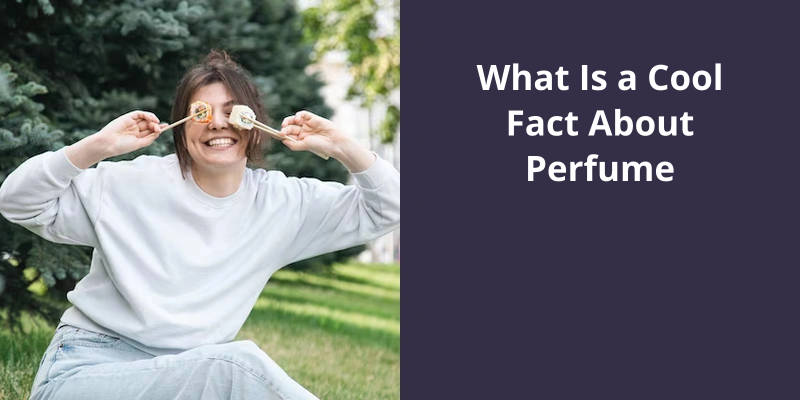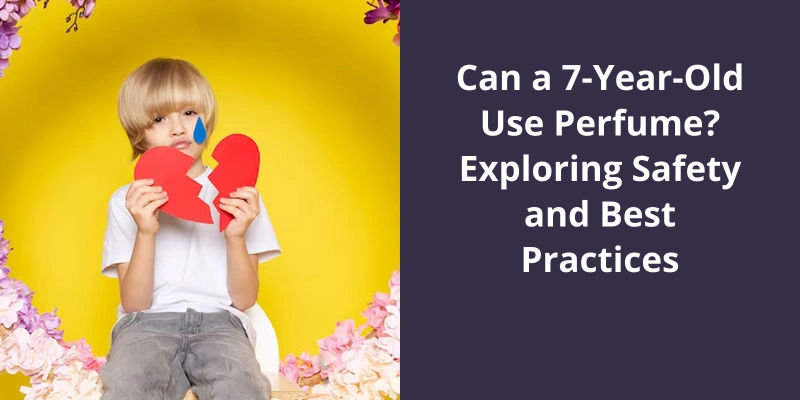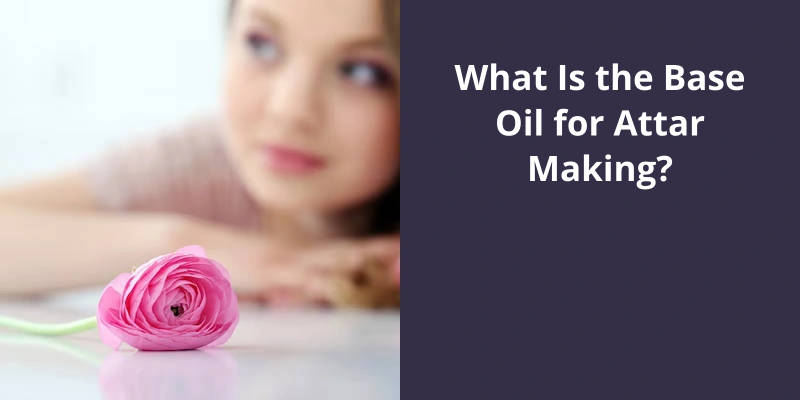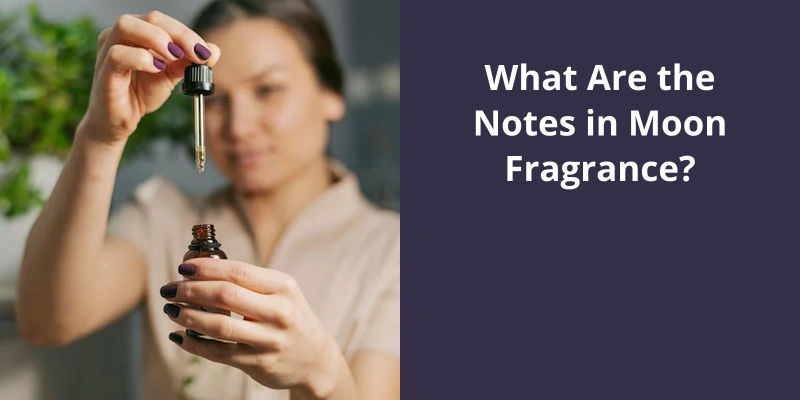What Is a Cool Fact About Perfume | Blog Article: Perfume, derived from the Latin word 'per fumum' meaning 'through smoke,' offers a fascinating journey into the world of scents and fragrances. Spanning back 2500 years, the intricate art of perfume-making has captivated civilizations throughout history, with the Romans and Arabs perfecting it’s creation and application. From ancient rituals to modern-day luxury, perfume carries a rich heritage steeped in tradition and innovation. Delve into this olfactory realm and discover the wondrous secrets behind the alluring world of perfume.

What Is the Main Purpose of Perfume?
Perfume isn’t only a beauty product, but it also serves a deeper purpose. It’s main goal is to give individuals a pleasant and desirable scent that can enhance their personal appeal and boost their self-confidence. When we smell good, we feel good, and this can have a significant impact on how we perceive ourselves and how others perceive us.
In addition to mood enhancement, perfumes are also believed to have cognitive benefits. Certain scents have been found to improve cognitive function, helping to increase focus, memory, and productivity. For example, the smell of peppermint has been shown to enhance alertness and mental accuracy, making it a popular scent in workplaces or study environments.
Furthermore, perfume can also contribute to better quality of sleep. Many perfumes contain calming and soothing ingredients, such as lavender or chamomile, which are known for their relaxation properties.
It’s the power to uplift our spirits, improve our well-being, and positively impact our daily lives. Finding the perfect scent that resonates with our personality and preferences isn’t only a matter of style but also a way to enhance our overall happiness and confidence.
The History and Cultural Significance of Perfume
Perfume has a rich history that dates back thousands of years. It’s origins can be traced back to ancient civilizations such as Egypt, where fragrance was highly valued and used in religious ceremonies and mummification processes. The art of perfume making then spread to other regions, like Greece and Rome, where it became associated with luxury and social status.
Perfume played a significant role in various cultures throughout history. In the Islamic Golden Age, perfume production flourished, and it’s usage in personal grooming and relaxation became an integral part of Middle Eastern culture. In Europe during the Renaissance, perfumes were considered a symbol of power and wealth.
Perfume has also been linked to the world of art. Renowned artists, such as Pierre-Auguste Renoir and Salvador Dalí, created perfume bottles and collaborated with fragrance houses to design unique scents. Today, perfume continues to be an art form, with perfumers crafting intricate blends using a combination of natural and synthetic ingredients.
Furthermore, perfume has the ability to evoke emotions and create lasting memories. Certain scents can transport us back in time, triggering nostalgia and reminding us of specific moments or individuals. The sense of smell is deeply connected to our emotions and can enhance our overall well-being.
In conclusion, perfume has a fascinating history and cultural significance. It’s served as a symbol of beauty, luxury, and personal expression across various civilizations. It’s ability to evoke emotions and create sensory experiences makes it a truly remarkable art form.
Perfume, an exquisite creation crafted from fragrant essential oils or synthetic compounds, serves as a liquid masterpiece that delights the senses with it’s alluring scent. As one of several cosmetic fragrances, it envelops the body in a captivating aroma that ranges from delicate perfumes to refreshing colognes and invigorating aftershaves [1].
How Do You Explain Perfume?
Perfume is known for it’s ability to awaken our senses and evoke memories with just a simple whiff. But what exactly is perfume? At it’s core, perfume is a liquid concoction that’s carefully crafted to emit a delightful and appealing aroma. This aromatic mixture is usually made up of fragrant essential oils that are derived from various plants and spices. These essential oils can also be artificially created through the synthesis of aromatic compounds, resulting in synthetic fragrances.
The creation of perfume is an art in itself. Perfumers, also known as noses, have the intricate task of carefully selecting and blending different aromatic ingredients to create a harmonious and appealing scent. They must have a deep understanding of the characteristics and nuances of each fragrance note, as well as the ability to envision how these notes will interact with one another to create the desired olfactory experience.
It’s fascinating to consider the vast array of scents that can be created through the combination of various aromatic ingredients. From floral and fruity notes to woody and spicy undertones, perfume has the power to transport us to different places and evoke a wide range of emotions.
In addition to it’s ability to enhance our personal scent, perfume has also been used throughout history for various purposes. In ancient times, people believed that certain perfumes possessed medicinal properties and could ward off evil spirits. Perfumes were also used in religious ceremonies and as offerings to gods and goddesses. Today, perfume continues to hold a special place in our lives and is an essential part of many cultures and traditions.
Whether youre a fragrance enthusiast or simply enjoy the pleasant aroma that perfume brings, theres no denying that it’s a fascinating and multi-faceted product. From it’s origins in essential oils and aromatic compounds to it’s intricate creation process and wide range of scents, perfume captivates our senses and leaves a lasting impression. It truly is a cool fact about perfume that highlights it’s role in our lives and the artistry behind it’s creation.
Source: Perfume – Wikipedia
Perfume, derived from the Latin word ‘per fumum,’ meaning ‘through smoke,’ has a rich history as the world’s first chemist and perfume maker, Tapputi, was a woman. Fascinatingly, the same fragrance can evoke distinct smells when worn by different individuals. These intriguing facts are only a glimpse into the captivating world of fragrance. Want to discover more? Keep reading!
Do You Know Facts About Perfume?
Did you know that the word perfume comes from the Latin word per fumum which translates to through smoke? This refers to the ancient practice of using smoke to disperse and enhance the fragrance of perfumes. The art of perfume-making dates back to ancient civilizations such as Egypt and Mesopotamia, where aromatic substances were used for religious rituals, beauty, and even medicine.
Interestingly, the worlds first chemist and perfume maker was not only a woman but also lived over 3,000 years ago! Her name was Tapputi, and she was mentioned in a cuneiform tablet discovered in Babylon. Tapputi was known for her various perfumes and was the first person to use a distillation process to extract scents from plants and flowers. Her innovative techniques laid the foundation for modern perfume-making.
Have you ever noticed that the same perfume scent can smell different on two different people? This is because our skins pH level and natural body odor can interact with the fragrance molecules, creating a unique scent. Thats why it’s important to try a perfume on your own skin before purchasing it, as it may smell differently from how it does in the bottle or on someone else.
Additionally, did you know that perfume can evoke powerful emotions and memories? Our sense of smell is deeply connected to our brains limbic system, which is responsible for emotions and memories. Certain scents can trigger nostalgic feelings, transport us back in time, or even bring back forgotten memories. This is why many people have a signature scent that holds special significance to them.
Lastly, did you know that perfumes have three main fragrance notes that unfold over time? These notes are top, middle, and base notes. The top notes are the initial scents that you smell when you first apply the perfume. They’re usually lighter and evaporate quickly. The middle notes, or heart notes, emerge after the top notes have dissipated and form the main body of the fragrance. Finally, the base notes are the longest-lasting and give the perfume it’s final character. They’re often rich, deep, and musky, and can linger on the skin for hours.
Overall, the world of perfume is filled with fascinating facts and stories. From it’s ancient origins to the intricate art of crafting scents, perfume has a rich history and the power to evoke emotions and memories. So next time you spritz on your favorite fragrance, remember the hidden world of perfume behind it’s enchanting scent.
Perfume, more than just a fragrant accessory, holds a unique power to showcase an individual’s persona and leave an everlasting impression. As a form of self-expression, it embodies the essence of femininity and is known to evoke memories long after it’s wearer has left the room. A perfect scent serves as a silent storyteller, speaking volumes about an individual’s style, taste, and personality. It’s a tool that transcends time and trends, carrying with it the transformative ability to elevate any outfit or occasion. So, let’s delve into the world of perfume and explore it’s captivating allure.
What Can I Say About Perfume?
Perfume, a fascinating concoction of fragrant notes, has captivated humanity for centuries. But beyond it’s alluring scent, there are intriguing facts that make perfume an intriguing subject. Did you know that perfume was once used as a form of communication? Indeed, it was seen as a way to express ones identity and enhance their personal style. Just like a piece of clothing, perfume carries a message and serves as a costume that reflects the essence of the person wearing it.
Furthermore, perfume has an undeniable link to elegance. Renowned fashion designer Coco Chanel once said, “No elegance is possible without perfume.”. It adds the finishing touch to an outfit and elevates ones overall presence. A carefully chosen fragrance can make a lasting impression, complementing a persons style and leaving a memorable fragrance trail long after theyve left the room.
Additionally, scent has a powerful connection to memory. The olfactory system, responsible for our sense of smell, is closely tied to the regions of our brain associated with emotions and memories. It’s said that even after forgetting what a woman wore, the lingering memory of her perfume remains. This extraordinary ability of scent to evoke memories and emotions highlights the profound impact perfume can have on our experiences, creating lasting impressions and evoking nostalgic feelings.
Another remarkable fact about perfume is the artistry and craftsmanship that goes into creating it. Perfumers, often referred to as “noses,” are highly skilled individuals who spend years perfecting their craft. They meticulously blend various aromatic ingredients, ranging from flowers to spices, in meticulous proportions to create unique and harmonious compositions. Each perfume tells a story, invoking emotions and capturing moments in time.
Lastly, throughout history, perfume has been regarded as a symbol of luxury and status. Fragrances were once reserved for emperors and royalty, and their scent was seen as a reflection of their power and wealth. Even today, a bottle of exquisite perfume continues to exude a sense of luxury and sophistication.
In the world of perfume, originality is key. The best scents in perfume history have always possessed a unique and innovative quality that sets them apart from the rest. From the use of exceptional raw materials to the implementation of a top-down marketing approach, these fragrances exude finesse in every aspect. Let’s explore what it takes to create a truly remarkable perfume.
What Are the Qualities of a Good Perfume?
When it comes to qualities of a good perfume, originality takes the top spot. A good perfume needs to offer a unique and distinctive scent that sets it apart from the rest.
Another crucial quality is innovation. The best scents in perfume history have always pushed boundaries and introduced new concepts. From the revolutionary use of synthetic molecules to the incorporation of unusual ingredients, innovative perfumes have the power to captivate and leave a lasting impression on their wearers.
Great raw materials also play a vital role in the creation of a good perfume. The finest fragrances often use high-quality ingredients sourced from around the world.
A top-down marketing approach is another quality commonly found in successful perfumes. This means that from the packaging to the advertising campaigns, every aspect is carefully crafted to appeal to the target audience. The bottle design, brand image, and promotional strategies must align with the overall concept and message of the perfume, effectively capturing the attention of consumers and enticing them to try the scent.
Lastly, finesse is a quality that distinguishes the best perfumes from the ordinary ones. A well-balanced fragrance with a graceful composition demonstrates the expertise and artistry of the perfumer. Every note should harmonize seamlessly, revealing different layers and evolving over time on the wearers skin.
These qualities ensure that a perfume stands out from the crowd, intrigues customers with it’s unique scent, and leaves a lasting impression.
Longevity: A Good Perfume Should Have Staying Power and Be Able to Last Throughout the Day. The Scent Should Remain Noticeable Without Being Overpowering.
A cool fact about perfume is it’s longevity. A good perfume is designed to have staying power and last throughout the day. It’s carefully formulated and contains certain ingredients that help make the scent last longer on the skin or clothing.
The goal of a perfume is to have a noticeable scent that lingers, without being overpowering. The longevity of a perfume depends on various factors such as the concentration of fragrance oils, the quality of ingredients, and the individual’s body chemistry.
Perfumers use different techniques to enhance the longevity of a perfume, such as layering different fragrance notes, using fixatives to hold the scent in place, or incorporating long-lasting aromatic compounds.
When choosing a perfume, it’s important to consider it’s longevity to ensure that it will continue to smell lovely throughout the day, leaving a lasting impression.
During this time period, perfume became popular for a variety of reasons. Firstly, hygiene practices during the seventeenth century weren’t as advanced as they’re today, resulting in unpleasant body odors. Fragrances became a way to mask these smells, allowing individuals to feel more confident and presentable. Additionally, perfume was seen as a status symbol, with the elite classes using exquisite scents to assert their wealth and sophistication. Even in England, perfumes were extensively utilized by influential figures like Henry VIII and Queen Elizabeth I.
Why Did Perfume Become Popular?
Perfume became popular for a variety of reasons throughout history. During the seventeenth century, especially in France, fragrance enjoyed enormous success. This was largely due to the lack of proper hygiene practices during that time period. Peoples cleanliness was often quite poor, and fragrances were used to mask the unpleasant body odors that were prevalent. Perfumes, with their strong scents, provided a much-needed respite from the foul smells that were pervasive.
In England, perfumes were also highly sought after during particular reigns, such as those of Henry VIII and Queen Elizabeth I. These monarchs were known for their opulent lifestyles and love of luxury, and they often used perfumes extensively. It became fashionable to own and wear various scents, as it was seen as a sign of wealth and status.
Additionally, perfume was valued for it’s ability to bring pleasure and evoke emotions. The art of perfumery developed into a sophisticated craft, creating fragrances that could transport individuals to different realms and evoke memories or emotions.
Furthermore, the rise of trade and globalization played a crucial role in popularizing perfume. As trade routes expanded and exotic ingredients from distant lands became more accessible, perfumers had a wider range of ingredients to work with, leading to the creation of unique and captivating scents. The allure of these novel fragrances sparked curiosity and desire among individuals, further fueling the popularity of perfume.





